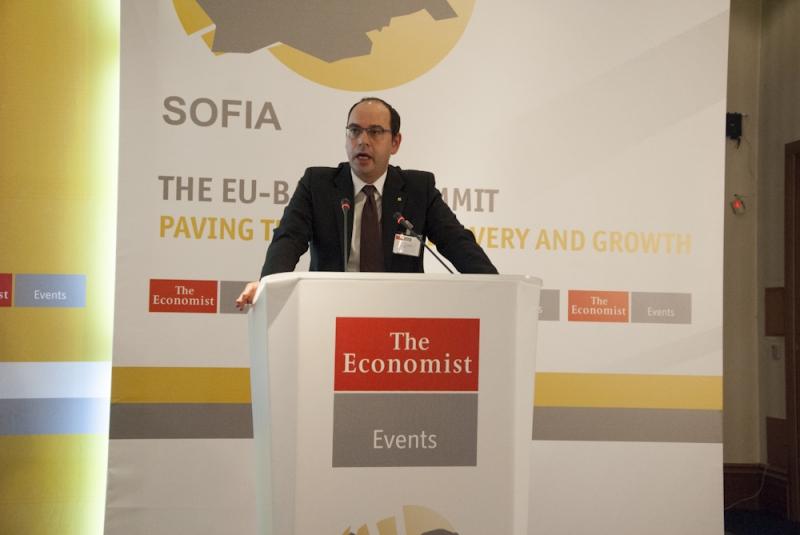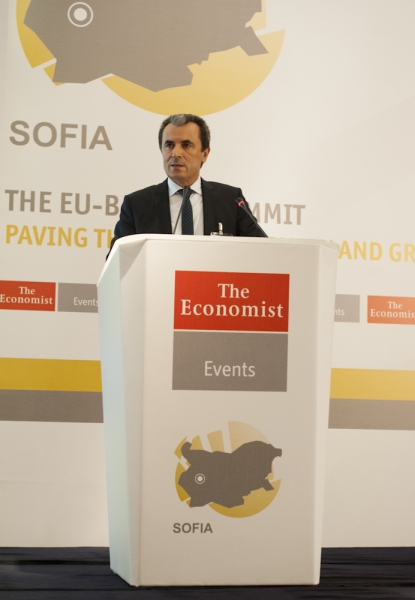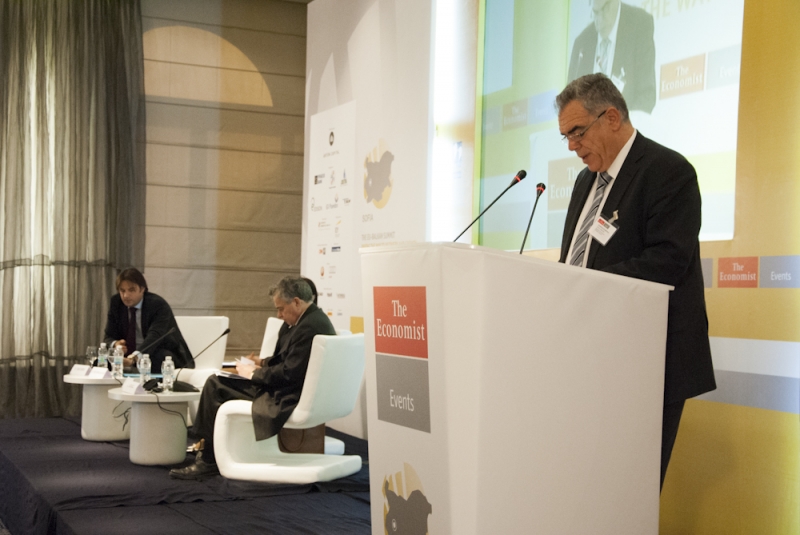Pictures - Polina Spartyanova
Polina Spartyanova
GRReporter correspondent in Sofia
For the past five years, the gross domestic products of Bulgaria and Romania fell by 30% in total in forecasts of Piraeus Bank and they are still unable to return to their pre-crisis levels  of economic growth, Ilias Lekos, chief economist at Piraeus Bank, explained during the two-day Euro- Balkan summit, organized by the Economist magazine. According to him, although the crisis is starting to withdraw from banks in the Balkan region, they remain well capitalized. The sector must learn from its mistakes in order not to end up back in the same starting position. Ilias Lekos pointed out some of the major mistakes of banks, such as the sharp credit growth before 2008 and the great focus on the level of economic growth posed by financial institutions which at the same time ignored its pace. The economist expressed hope that banks in the Balkans have "learned their lesson" and will need to upgrade their credit sector and criteria for risk management.
of economic growth, Ilias Lekos, chief economist at Piraeus Bank, explained during the two-day Euro- Balkan summit, organized by the Economist magazine. According to him, although the crisis is starting to withdraw from banks in the Balkan region, they remain well capitalized. The sector must learn from its mistakes in order not to end up back in the same starting position. Ilias Lekos pointed out some of the major mistakes of banks, such as the sharp credit growth before 2008 and the great focus on the level of economic growth posed by financial institutions which at the same time ignored its pace. The economist expressed hope that banks in the Balkans have "learned their lesson" and will need to upgrade their credit sector and criteria for risk management.

Bulgarian Prime Minister Plamen Oresharski told participants at the summit that Bulgaria’s credit rating is the highest in the Balkans, but the economy is still suffering from the blows of the five-year recession. The Prime Minister paraphrased Friedrich Nietzsche saying that "the crisis has not killed us, but made us stronger". In turn, in her opening speech, Deputy Prime Minister of Bulgaria in charge of the "Economic Development" sector Daniela Bobeva emphasized that Balkan countries will cope with financial problems more effectively if they work together in this respect. According to the Bulgarian Deputy Prime Minister, Balkan countries need to work together on public-private partnership and develop together common policies in order to restore the economic growth in the region. According to Bobeva, this could be a sound basis for the strengthening of investor interest and restoration of the confidence in the Balkans.
Coordinator of the World Bank for Balkan countries Wolfgang Fengler pointed out four major problems related to the slowdown and weak economic growth in the Balkans. The first, and main one, is the deteriorating demographic situation in Balkan countries, since the working age population has decreased significantly over the past few years. According to Fengler, a smaller number of workers are supporting a growing number of pensioners and countries will not be able to invest in further growth at this stage. According to the latest data from the World Bank, the potential economic growth in the Balkans will be 3% in 2018 and therefore Fengler believes that "Balkan economies are doing worse even compared to average markets." In his speech, the representative of the World Bank stressed that it was high time the Balkans met macro-level challenges such as reforms in education, research, technology and businesses.

In turn, Dimitris Kourkoulas, Deputy Minister of Foreign Affairs of Greece acknowledged that the crisis has hit the weakest points in Balkan political systems and faster reforms should therefore be taken, in order for countries to recover. He described the tight fiscal policy during the Greek debt crisis as one of the most important factors due to which the country is regaining its stability and security. Kourkoulas expressed hope that after Greece has struggled with the crisis for six years, the country will be able to announce positive economic growth in the coming 2014.